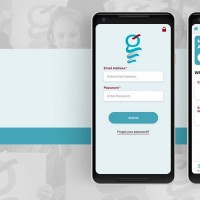Introduction
I'll start off with an apology! This is a long article. I really didn't intend it to be as long as this, but there is a lot to explain and I wanted to justify my reasoning. Anyway, I'm just making it longer! So, sorry again and enjoy!
So, you've started down the path of implementing CRM and you know exactly what your goals are for the project. That's a great start, but how do you make sure you actually hit those goals? Who is going to do the work, make sure you are on track, and make sure you are making the right decisions?
Implementing a CRM system can be a complex task. Implementing CRM across your business is even more complex. It requires structured organisation, decision making, and - above all - good communication. Basically, it requires a team of people working together towards a common goal, which is exactly what they're trying to implement. So, it's a team of people working towards having a team of people working towards a common goal... get it? Good.
So, who should be in your CRM team?
Why I Didn't Call It a Project Team
Just a quick note... I didn't call it a Project Team, because this team should really be the ones to drive CRM in the business and to continue improving CRM after the project is complete as well. At first, they are a project team, but they should evolve and develop into an on-going group of people aiming to maximise CRM throughout the business.
The Project Manager
Remember, this is a project, so a Project Manager is a good start. The Project Manager should be there to make sure things happen on time, make sure any errors are dealt with appropriately, risks are known and - where possible - avoided, and everyone who needs to know what's going on is kept up to date. If this is a big implementation, a proper Project Manager position should be considered. However, for small implementations, these jobs may just fall on whoever is leading the project.
If a Project Manager is required, make sure they are involved as early as possible. They may already be part of the team who decided on the goals, but - if they weren't - they should be involved now. Do not underestimate how much involvement a Project Manager should have. While they should not be making the decisions in most cases, they should know exactly what is going on and why at any time throughout the project.
The Project Manager should also help you to get your CRM Team together and identify who needs to be at which meetings, etc.
Project Management Methodology
You may notice that I have specifically avoided making any references to Project Management methodologies. The main reason for this is because these articles are about CRM implementations, not how to run a project. There is some crossover between the two, but not enough to warrant writing about specific methods, at least for the time being.
The Consultant
I know that word can mean spending money and send alarm bells ringing and, yes, I'm aware that I am a CRM consultant working for a company that sells CRM consultancy services amongst other (brilliant) things. However, I'm going to explain to you exactly why I think you need a consultant and how to get the best out of them. This comes from years of experience working with consultants, managing consultants, and as a consultant myself.
Why Consultants Help
Very simply, because that's what they're paid to do and that's why you should listen to them. Maybe you have had bad experiences with some, but good consultants bring immeasurable value to your project and a wealth of knowledge on which to build. They should have worked on multiple projects before and been exposed to different scenarios so they can use that knowledge to give you the best advice possible.
They will notice when things are going wrong before it's too late, know the best way to achieve your project targets and, in CRM projects, they will know how best to use technology to hit your goals.
Who Should Consultants Report To?
To get the most out of a consultant, they need sit somewhere in between the Project Manager and whoever provides final sign-off, because they should have the experience and the know-how to lead the project, but they should not get bogged down with organising meetings, setting up conference calls, etc, etc.
The consultant (or consultants) should be what some people like to call the "Executive Sponsor" or "Executive Champion" - personally, Consultant works well for me. Call them whatever you like, but make sure they can influence the project. Without having the ability to influence the project, the consultant's knowledge and expertise is wasted.
Who Should Your Consultant Be?
The idea of a CRM consultant is to bring ideas and experience into your project that you may not already have within your business, but there is an added bonus in doing this. By bringing in an outsider, you avoid some very common and often overlooked issues in IT projects.
People - especially users - don't like change at work. Change is scary. What if they can no longer do their job as well as before? Will they get into trouble or be replaced? Will they end up losing their job? Will they miss out on that promotion they've been after? The reason that staff don't like change will be different from person to person, but most users generally are just quite settled in to their way of working, are quite protective about what they do, and don't want to have to go through the whole learning process again.
As a result, projects can be influenced by staff who do not want change, either intentionally or unintentionally. An outsider's perspective allows choices to be made without resistance and without trying to keep the old style of working that you are trying to replace.
This is especially important in CRM projects, as the whole idea is to change the mentality of the business.
System Administrators
A good System Administrator can be an absolute lifesaver and is worth every penny you spend on them. Good system administrators keep your system ticking over and working to the best of its ability. They identify and solve issues before the problem gets out of hand, make adjustments to make things easier or better, and should be your system champion, knowing more than anyone else about the data, processes and features of the system.
If you haven't already got one - and especially if you have a system of 20 or more users - get one. I have known some people to try to cut corners and make one of the users the System Administrator or try to hand the job to someone with little or no IT experience. However, I have never known this to work and I strongly advise against it.
Power Users
Power users, or advocates as they're sometimes called, are people around the business who can really push the CRM message. These people should be 100% on board with what is trying to be achieved, should support the project throughout, and should have the influence to spread the message. They should drive others to adopt changes even if they don't agree 100% and to cooperate fully with the project.
To do this, they need to know what the project goals are and they need to be kept up to date with how those goals will be achieved. If they know that, they can encourage other business users to do whatever is needed to make the CRM team's jobs easier.
They need to make sure everyone in the business is considering the goals of the CRM project when making decisions. For example, if another department starts a project to make some changes, can that project be incorporated into the CRM project? Is there any crossover and, therefore, any duplication of work?
The power users should be influential, involved in quite some detail in the CRM project and other projects around the business, and they should be 100% on board with the changes. Basically, the Power Users are managers and heads of departments.
Others
Yes, there are other people who should be involved, but these will depend on the project and I didn't want to go into detail about everyone. As well as the people above, you should have other project board members, stakeholders and representatives from the departments involved.
Your Project Manager should be able to ensure you have a good CRM team in addition to those I have mentioned.
The Examples
Here are examples of the CRM Teams my fictitious companies will have (you can read more about my companies here).
Zapplex - A Company-Wide Implementation in a Call Centre
Zapplex's main goals for their CRM implementation are to increase communication within the business and incorporate marketing into their processes. As a result, they need a heavy influence from the marketing department, the standard heavy influence from IT which should accompany any CRM project and buy in from all departments.
Even though this is a company-wide implementation and Zapplex are successful, they are not a huge company. As a result, they do not have full time Project Managers on staff. For this project, they will need to bring in a Project Manager for the duration of the project, as well as a consultant. They could ask someone internally to be the Project Manager, but that can lead to bias towards a particular department or way of working. It also detracts that user from the everyday tasks of the role.
So, their CRM team consists of:
- An External Project Manager
- The Marketing Manager
- The IT Manager
- The Head of Sales
- The Call Centre Manager
- An External Consultant
- Power Users
Seeing as Zapplex will be getting a new CRM system as part of the project, a System Administrator will be hired along the way.
Inity - A Department-Wide Implementation in an Automotive Company
Inity Fleet are looking to communicate better with their customers and provide a higher level of customer service. Because this is a department-wide implementation (with a bit of crossover into customer relations), there is not such a need for a full-time project manager, as there are far less people to organise. Instead, the system administrator will lead the project, with the backing of the department head.
Inity Fleet already have a business partner who provide their existing CRM system. That business partner will provide the external influence that I discussed in the Consultant section of this article. Relying on advice from an external source can sound risky, as people think they're just trying to sell you as much as they can. However, as much as they would like more money, they also want the project to go well so they can keep their customer happy. Also, the System Administrator and Head of Department should be able to keep track of the project between them.
Their CRM team consists of:
- System Administrator/Project Manager
- Head of Department
- Business Partner Representative
- Customer Relations Representative
- Sales Representative
Other members of staff will get involved as and when they are required and will be kept up to date of progress at team and department meetings.
BigTech - A Team-Wide Implementation in an IT Company
BigTech's goals are to make their development team work more efficiently. This is a team implementation, so the CRM Team is actually quite simple. It's the team.
However, the team does need some sort of structure. In this case, the team is quite small, so the CRM team lead will probably be the development team leader, but they could delegate that task to someone else if they want to. As long as someone is in charge and everyone knows what is expected of them, that should be enough.
If this were a big team, there would be more structure and it would become more like the department example above. However, it's quite a small team and, if people don't know their part, there is a bigger problem than just the project!
Summary
- Your CRM Team should all work together to achieve your objectives.
- A CRM Team is not the same as a Project Team, as they should still meet and continue working once the initial project is over.
- Project Managers are required for big projects, but maybe not for small projects.
- The Project Manager should be involved early and help organise the CRM Team.
- An external CRM consultant gives you the best chance of succeeding.
- Your consultant should sit between the PM and the final decision maker.
- If you haven't got a system administrator, you will need one.
- Power Users should be managers with influence around the business and should push CRM whenever and wherever they can.
- Example CRM Teams:
- Zapplex:
- An External Project Manager
- The Marketing Manager
- The IT Manager
- The Head of Sales
- The Call Centre Manager
- An External Consultant
- Power Users
- Inity:
- System Administrator/Project Manager
- Head of Department
- Business Partner Representative
- Customer Relations Representative
- Sales Representative
- BigTech:
- The whole team.
- Zapplex:








































